- Administrator
- Albums and Singles
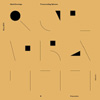 Motion Sickness of Time Travel's Rachel Evans is having a very Emeralds-esque year, unleashing an impressive slew of excellent (and generally pretty limited) releases under a variety of guises. This particular one is her first full-length collaboration with her husband, Nova Scotian Arms' Grant Evans, and it unexpectedly avoids using her characteristic reverb-heavy vocals much at all.  That seems like it should be a significant handicap, but it apparently wasn't, as Grant and Rachel have created a beautifully melancholy and subtly psychedelic ambient opus.
Motion Sickness of Time Travel's Rachel Evans is having a very Emeralds-esque year, unleashing an impressive slew of excellent (and generally pretty limited) releases under a variety of guises. This particular one is her first full-length collaboration with her husband, Nova Scotian Arms' Grant Evans, and it unexpectedly avoids using her characteristic reverb-heavy vocals much at all.  That seems like it should be a significant handicap, but it apparently wasn't, as Grant and Rachel have created a beautifully melancholy and subtly psychedelic ambient opus.
Quiet Evenings is noteworthy in being both perfectly named and quite different from either of its members' solo work.  Transcending Spheres probably shares a bit more common ground with Grant's Nova Scotian Arms' work than Rachel's though, simply because it betrays a clear love of Kosmische/vintage synthesizer music, but it lacks any of the darkness that tends to haunt that project.  Instead, he and Rachel use their synthesizers and treated guitars to create warm and shimmering dronescapes.  This a very womb-like album, which, of course, is not especially novel stylistic territory.  However, Quiet Evenings have clearly spent many of their quiet evenings at home diligently honing their craft, as this album is both sublimely executed and utterly immersive from beginning to end.
The music, for the most part, is constructed of multilayered synth drifts and swells.  Within those narrow confines, however, Grant and Rachel find a lot of room to give each song its own unique character.  For example, Rachel's ghostly, whispered vocals make their sole appearance on "Finality," giving the piece a haunting and dreamlike haze.  Even more striking is the forlorn, theremin-sounding section near the end of "The Inevitability of Decay."  The other five pieces are a little bit less overt in asserting themselves, but there are a lot of minor quirks to enjoy: subtly burbling pulses, buried snarls of distortion, electronic bird noises, etc.  Nothing is quite harsh or forceful enough to ever break the album's pleasantly narcotic spell, but there is enough small-scale unpredictability, passing shadow, and mood-variability to prevent things from ever becoming too edgeless or blissed-out.
Quiet Evenings will probably not get as much attention as some other Evans-related releases, as this is certainly very restrained and low-key.  Nevertheless, Transcending Spheres stands among the best releases from either Grant or Rachel, deftly avoiding the tossed-off feel common to many releases by folks this prolific.  It is possible that many of these pieces began their lives as improvisations, but it is obvious that a great deal of effort and care ultimately went into creating a coherent, dynamic, and beautifully textured whole.  As far as ambient albums go, it is hard to get much better than this.
Samples:
 
Read More
- Administrator
- Albums and Singles
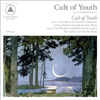 After several years of limited-release, home-recorded solo recordings, Sean Ragon's fascinating neo-folk/post-punk project has finally made its formal debut as an actual band.  While deeply flawed at times, its unusual amalgamation of paganism, acoustic instrumentation, raw power, and wild-eyed intensity can be quite electrifying when it hits the mark.
After several years of limited-release, home-recorded solo recordings, Sean Ragon's fascinating neo-folk/post-punk project has finally made its formal debut as an actual band.  While deeply flawed at times, its unusual amalgamation of paganism, acoustic instrumentation, raw power, and wild-eyed intensity can be quite electrifying when it hits the mark.
From the opening notes of "New West," it is immediately apparent that Sean has performed a striking feat of alchemy in assembling his band.  Glenn Maryansky's muscular, rolling toms; the physicality of Micki Pellerano's loud, detuned bass; the clean, floating melodies of Christiana Key's violin; and Sean's own frenzied acoustic guitar strumming and barked/snarled vocals all combine to form a very heavy and distinct aesthetic.  Ragon in particular is quite a compelling and unconventional frontman, easily holding his own against the rumbling din behind him through sheer bulging-tendon force of personality–it wouldn't surprise me at all to learn that he finishes every show with bloody fingers and an utterly ravaged throat.  The band manages to hit near-perfection again on the album's ferocious closing song, "Lace Up Your Boots," which sounds like Death in June doing a raucous, go-for-broke cover of an Oi! anthem.  Unfortunately, things get a bit more complicated and ambiguous during the nine songs that separate those two highlights.
The problem is that Cult of Youth's immense energy and vision is only effective when focused properly and many of the songs seem a bit tentative, misguided, or incomplete.  I am tempted to say that this band has mastered exactly one type of song (the "angry, post-punk sea-shanty") and lose the plot whenever they attempt to diverge from that formula, but a few of their digressions are still pretty likable, such as the goth-folk of "Casting Thorns," or the beautifully melancholy "Weary."  Even some of their misfires are at least interesting, like the stomping Wicker Man-style folk-dance-on-amphetamines of "Monsters."  Ragon is clearly drawing inspiration from some curious and eccentric sources, as there are also shades of mariachi, Eastern-tinged psych, and Morricone on display.  Unfortunately, there are also several songs that are just very confusing or outright bad.  I especially have massive problems with the jazz/funk guitar chords in "The Dead Sea" and the vapid, toothless pop of "Through the Fear."  I sometimes get the feeling that Ragon is trying to stretch unfinished or dubious ideas into songs solely through manic enthusiasm and raw conviction.
The occasional schizophrenia and the huge gulf in quality between the great songs and the not-great songs make Cult of Youth a very frustrating album, but one that is still well-worth hearing, as all of the elements of a pretty great and singular band are evident.  It is always enjoyable to hear something that is this aggressively un-trendy, particularly when it is delivered with so much earnest intensity.  There is an impressive amount of guts, creativity, and ambition on display here–Ragon just needs to get a little better at consistently harnessing it.
Samples:
 
Read More
- Administrator
- Albums and Singles
 In a recent interview, Kyle Bobby Dunn told Fracture Compound that he heard "the truth" in his favorite music, a truth that he associates with the "brutal honest beauty" of certain classical compositions. Kyle doesn't spell out what he thinks the truth is, but I suspect that Ways of Meaning provides a clue.
In a recent interview, Kyle Bobby Dunn told Fracture Compound that he heard "the truth" in his favorite music, a truth that he associates with the "brutal honest beauty" of certain classical compositions. Kyle doesn't spell out what he thinks the truth is, but I suspect that Ways of Meaning provides a clue.
Kyle Bobby Dunn's music is beautiful for a lot of reasons, some obvious and others a little more obscure. In the first place, Kyle writes elegant and aching music that is both picturesque and personal; his melodies effortlessly communicate human emotions like fear, joy, and loneliness, but they can describe places or provide narratives, too. I think it's possible that some of Kyle's music is pleasing simply because it's the musical representation of a pleasing place or memory. Either way, Kyle uses simple ingredients to create attractive, and sometimes complex, music, which brings me to the obscure qualities. They have less to do with the sound of the music itself and more to do with the effort put into making it. Following the lead of several great composers, Kyle strives to produce a wide range of sounds and colors using a minimum of elements, and there is something pleasing about that in and of itself. It is a great challenge to say more with less, and hearing someone face that challenge is akin to watching an athlete accomplish a difficult feat. Ways of Meaning is also just over 40 minutes long, so it features both a strict economy of instrumentation and time. Dunn knows that simplicity has its own beauty, and he has suffused his latest album with it in every way possible.
That's something Kyle has always done with his music, though. What makes Ways different is the secret Kyle has smuggled inside it. That secret first comes to light on "Movement for the Completely Fucked," a song whose title would be comical if it weren't so insidious. Like the other five songs on this album, it's both calm and measured, but unlike the other five, its title is completely incongruous. I'd chalk that fact up to impertinence, except "Movement" is ambiguous to the point of being ice cold, like a dead stare from across the poker table. The music is undeniably attractive, but with this added intrigue, it acquires the brutality Dunn mentioned in his interview. It ceases to be pretty in a simple way, and it loses some of its obscure allure at the same time. But, because it's still composed of the same elements as the other songs, it refuses any deeper inquiry. There are no lyrics, no honest statements, and no guideposts. After getting to this point, all I hear is the sound of Kyle being erased from his music. By stripping his instrumentation down and refusing to utilize conventional forms, Kyle both simplifies his music and removes himself from it. What's left is uncertain and even misleading.
So, when Kyle says he is drawn to the truthfulness of his favorite music, I have to wonder what he has in mind and whether he intends to infuse his own music with that same truthfulness. As I listen to Ways, I think the answer must have something to do with the play between simplicity and meaning, a natural topic for someone attracted to minimalism. It's tempting to think that, as music becomes simpler, so too must its content, but Kyle challenges that notion with the smallest of twists. Were the music just a shade happier or a tad darker, it would be easy to dismiss this discrepancy, or to miss it altogether. Of course, were "Movement for the Completely Fucked" named otherwise, there would be no reason to suspect anything at all. In any case, Kyle underlines the complexity of the idea of "meaning" by demonstrating its volatility in even a spartan musical environment. There's nothing surprising about that conclusion, but he expresses it in such a way that it becomes evidently frightening, honest, and beautiful. Music isn't terribly different from language, and if sound is so ambiguous, then think how much more difficult language must be, whether we realize it or not.
Of course, I haven't read that Kyle has said anything about that. Maybe the truth is that minimalism isn't as minimal as we might think, or that music can be beautiful whether it means anything or not.
samples:
 
Read More
- Administrator
- Albums and Singles
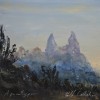 According to major news stations, approximately 3% of America's population was convinced the rapture might occur on May 21, 2011, due to the prophecy of a Christian evangelist, radio personality, and madman. A day later, and the apocalypse hasn't come—surprise!—which means you still have a chance to hear Bill Callahan's latest, aptly-named album before the world actually ends.
According to major news stations, approximately 3% of America's population was convinced the rapture might occur on May 21, 2011, due to the prophecy of a Christian evangelist, radio personality, and madman. A day later, and the apocalypse hasn't come—surprise!—which means you still have a chance to hear Bill Callahan's latest, aptly-named album before the world actually ends.
Callahan has been releasing music for 20 years now, and Apocalypse isn't likely to change minds for those not interested by now. It is a fine addition to his catalog, though—I have played it every week since I heard it back in March, and to my ears, this is the best album he has made since his final full-length as Smog, 2005's A River Ain't Too Much to Love. As usual, this is a subtle progression for Callahan that contains small tweaks to his approach—seven intimate songs in 40 minutes that are captured well by the serene, scenic landscape on its cover.
My favorite aspect of the album—like Callahan's last full-length, 2009's Sometimes I Wish We Were an Eagle—is the total richness of the performances captured. Apocalypse sounds flat-out gorgeous, among the best production and mastering jobs this year. The album was supposedly recorded live in the studio, and the production reflects that: there's a gritty, one-take-or-bust character to the songs that is urgent, impassioned. Details abound in the mix, whether the echo of Callahan's vibrating acoustic guitar strings; the howl and strum of his electric; the gravity of his nuanced baritone; or his ensemble's accompaniment on strings, banjo, drums, and other subtle flourishes. The whole thing is a joy to listen to, regardless of whether the songs themselves are any good.
Luckily, the songs are on-point more often than not. The earthy production lends itself well to a set of seven tunes that sprawl and stretch out, with less concision than Callahan typically seems to shoot for. His lyrics dance around vaguely apocalyptic topics, though often on a personal level, such as the struggles in a relationship. "Where has my baby gone? / She was not a weed, she was a flower," he mourns. At other points, he centers on humility and the value of self-discovery. "My, my, my apocalypse," Callahan intones, "I realized I had said very little about ways, or wheels, or riding for the feeling." His lyrics are just vague enough to avoid being pinned down with specific meaning, but it's tough not to feel their impact all the same. In the same song, he concludes: "Leaving is easy when you've got someplace you need to be"—perhaps the charm is that it's impossible to tell how confident he really is in that assertion.
At one point, Callahan turns his attention outward to his home country. Like many Americans, he struggles with how to interpret recent events and our overall state of life. Should he feel proud and patriotic? Embarrassed? Angry at leaders who made decisions to stay at war? Or should he simply shrug it off with a self-deprecating laugh? Callahan is bright enough to know not to place all his eggs in one basket: emotions are complex things, as is our country, and his lyrics on "America" are simultaneously reverent and critical, witty and unknowing. In the end, he reverts inward again, knowing that when he can't control his surroundings, or the people in his life, that he can always control himself:
One fine morning, I'm gonna ride out
Just me and the skeleton crew
We're gonna ride out in a country kind of silence
Fair enough—if Apocalypse is his parting shot, it's a bulls-eye.
Samples:
Read More
- Administrator
- Albums and Singles
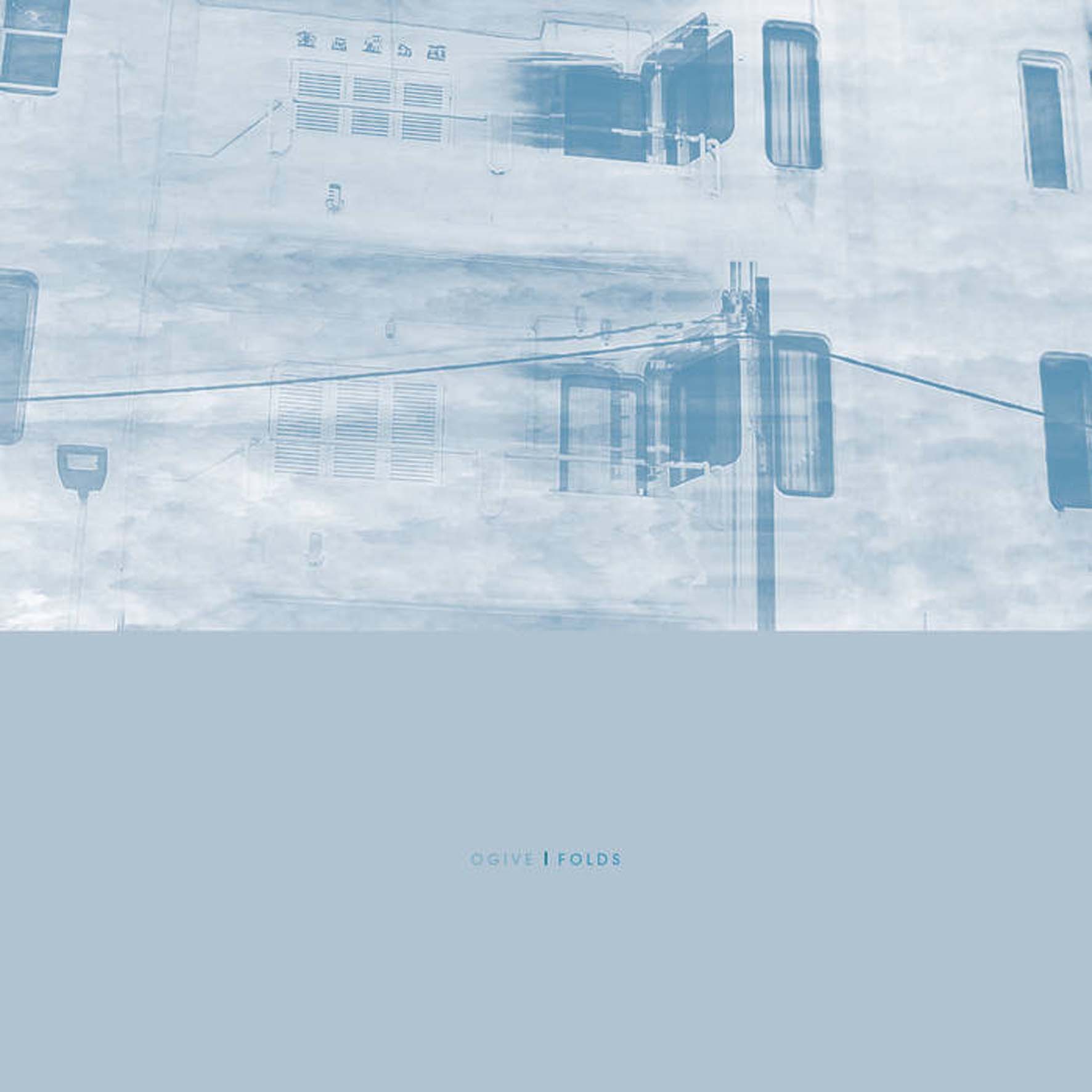
This new collaborative project pairs one of the UK’s most gifted and unconventional drone artists, Chris Herbert, with Spanish sound artist Elías Merino. The duo were initially brought together by their shared interest in creating lushly textured soundscapes, but each has a very different process for arriving there: Herbert is quite fond of natural and non-musical "found" sounds, while Merino's work is primarily computer-generated. Their commonalities handily eclipse any potential aesthetic clashes though, as Folds sounds like an absolutely gorgeous drone album enlivened by a churning undercurrent of grainy textures and sneakily obscured small-scale kinetic transformations. I suppose that description could probably apply to much of Herbert's solo work as well, but Folds definitely feels like an extra layer of depth, textural complexity, and visceral power has been added to the picture. Merino's presence has taken something already wonderful and elevated it to a whole new level.
It feels exasperatingly reductionist to describe Ogive's work as "drone," even though that term is a perfectly apt one structurally: Folds' five pieces are all built from a fairly straightforward foundation of hazily dreamlike thrum, crackle, and hiss.Sadly, no one has yet coined a fitting genre name for something that is essentially drone music, but on a much larger and more transcendent scale, nor is there a special designation for drone that vibrantly buzzes with a dazzling ecosystem of intricate, dynamic details.Folds, however, delivers on both of those fronts from start to finish.As such, it demands to be played loudly, as it feels like a force of nature and should be experienced that way.On the opening "Dehiscence," for example, Ogive evoke nothing less than a massive, crashing wave of beauty–it slowly rolls in with rumbling, seismic power, then becomes an overwhelming and completely immersive sensory experience.If a tidal wave washing over a town could be stripped of everything negative and viewed strictly as a slow-motion aesthetic phenomenon, it would probably be a lot like "Dehiscence," completely transforming the landscape and creating an otherworldly and sun-dappled state of suspended animation: everything normally in the town is still there, but radically recontextualized and blurred into unrecognizability.At times, the underwater world of "Dehiscence" has pockets of violence and danger, but it all eventually recedes to leave only gently rippling pools and metaphorical dripping eaves in its wake.In essence, that tableau is what every piece on Folds seems to strive for (and achieve): taking elements of the familiar and transforming them into something alien, new, and weirdly beautiful...and doing it in impressively decisive and enveloping fashion.
On the following "Isomerica," the illusion is a bit easier to deconstruct, as it sounds like a field recording of a clanking and grinding factory floor smoothed over with a languorous wash of shifting, blurry harmonies.It is not any less heavenly than its processor, however.In fact, it even transcends it in some respects, unexpectedly blossoming into what feels like a soft-focus and half-remembered fireworks display near the end.Later, "Refractaise" further highlights Ogive's unconventional genius for texture, as the bed of drones feels like an undulating and visceral machine-like hum that unpredictable swells into grinding and sizzling crescendos.There are also some ghostly sustained tones creating shifting harmonies, but it never sounds like there are any human musicians playing human instruments involved–it sounds instead like I am having an especially real and physical nightmare set in a haunted factory.Elsewhere, "Rifts" feels like a rhythmically pulsing sea of crackling radio waves and shuddering machinery.Gradually, it becomes increasingly disrupted by subterranean surges that cohere into a heavy new rhythm.That industrial churning ultimately gives way to a comparatively pastoral second half...sort of.The drones certainly subside to a roiling simmer and some happy ducks lend their voices to the scene, but it still takes a while before the rumbling subsides enough that it no longer feels like the ground might suddenly tear wide open at any time.The closing "Superhabitat" unexpectedly diverges a bit from the usual winning formula, playing up Ogive’s more straightforward drone aspects a bit more than the other pieces, but is not any weaker for it.Instead, it simply feels like a single sustained and undulating organ chord jacked up to engulfing immensity through plenty of grainy, distorted layering.It sounds a lot like prime Tim Hecker, but a Tim Hecker who found one perfect chord and simply decided to hypnotically ride it out into eternity.
Naturally, a great deal of Folds' success is due to the seamless blurring together of both artists' distinctive and unusual approaches to pure sound: this album is instantly mesmerizing primarily because it feels like an immense and shuddering organic entity.Herbert and Merino are extremely adept at erasing any traces of themselves, and both have a seemingly infallible intuition for avoiding missteps.Any recognizable instruments, deliberate chord changes, or melodies would have unavoidably ruined the spell, regardless of their compositional utility.Consequently, all are nowhere to be found.Instead, Folds seems to have found a post-compositional path where both artists egolessly allowed their sounds and their tools to shape a "natural" flow.Of course, there is also a second piece to the puzzle: such an approach would just be a cool conceptual experiment if it did not sound great, so it is fortunate that Folds is also a rich, muscular, and vibrant tour de force of production skill.Lovely spectral harmonies and subtle, sharply realized textures abound, but they are always in service of a whole that often feels like being consumed by a heavenly avalanche.No one will make a better drone album than this in 2017.
Samples:
 
Read More
- Administrator
- Albums and Singles
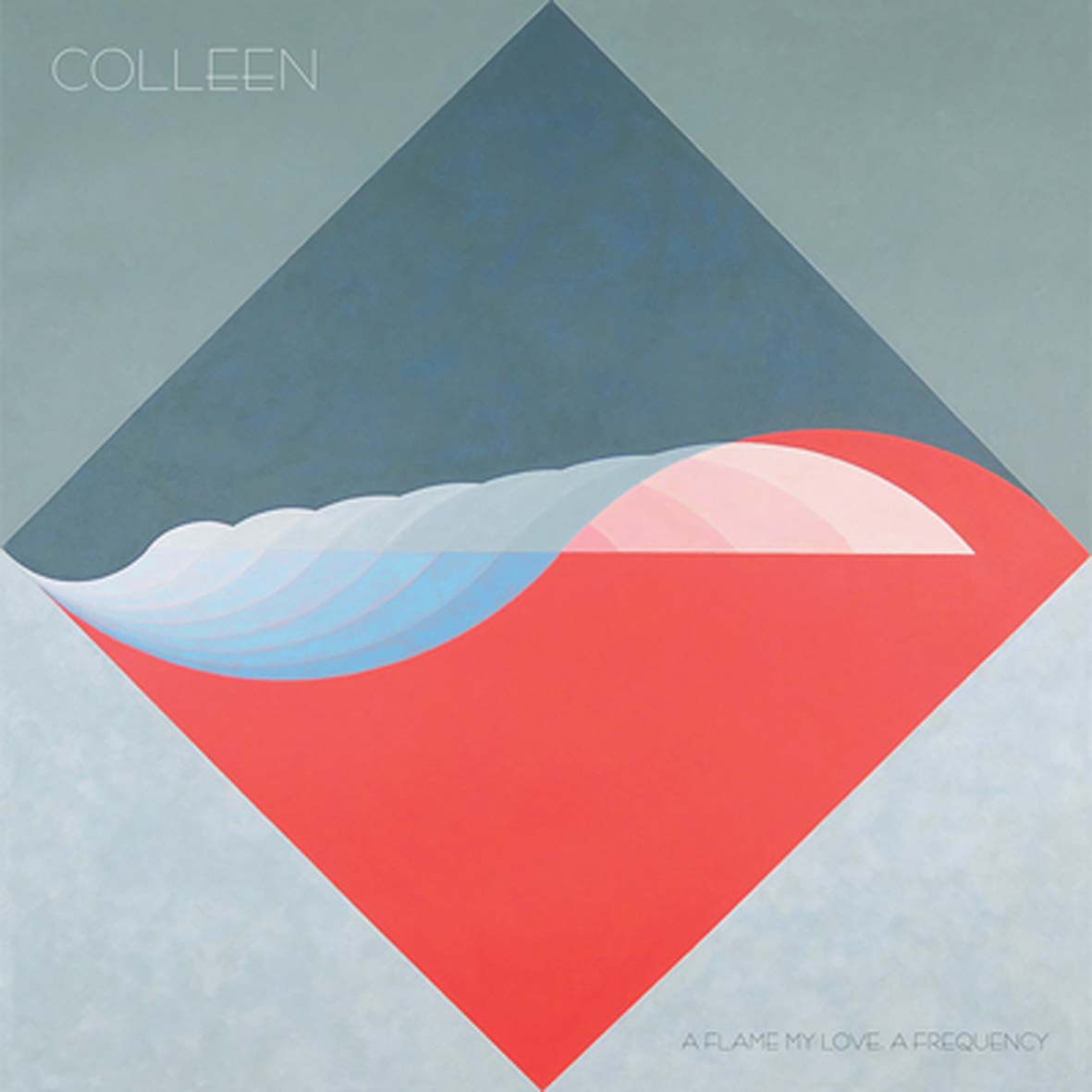 Cécile Schott has long been my absolute favorite kind of artist: the kind who thoughtfully and quietly pieces together wonderfully distinctive albums and tends to only surface when she has something new and intriguing to say. As a result, being a Colleen fan has been a deliciously unpredictable slow-motion rollercoaster that has taken some expectation-subverting turns over the years: most artists who come right out of the gate with a sublime and timeless masterpiece like Everyone Alive Wants Answers would just keep revisiting that success with diminishing returns, but Schott has tirelessly kept moving forward with each new album. That evolution reached a crescendo of sorts with 2015 vocal-centric Captain of None, shedding a lot of artifice to reveal a more intimate and direct incarnation of Colleen. In some ways, this latest album continues that trajectory, but it also finds Schott setting her viola da gamba aside for a synthesizer. Admittedly, I tend to shake my head sadly whenever someone makes a synth album these days, but Schott has managed to bend those electronics to her will rather than falling under their spell like so many others.
Cécile Schott has long been my absolute favorite kind of artist: the kind who thoughtfully and quietly pieces together wonderfully distinctive albums and tends to only surface when she has something new and intriguing to say. As a result, being a Colleen fan has been a deliciously unpredictable slow-motion rollercoaster that has taken some expectation-subverting turns over the years: most artists who come right out of the gate with a sublime and timeless masterpiece like Everyone Alive Wants Answers would just keep revisiting that success with diminishing returns, but Schott has tirelessly kept moving forward with each new album. That evolution reached a crescendo of sorts with 2015 vocal-centric Captain of None, shedding a lot of artifice to reveal a more intimate and direct incarnation of Colleen. In some ways, this latest album continues that trajectory, but it also finds Schott setting her viola da gamba aside for a synthesizer. Admittedly, I tend to shake my head sadly whenever someone makes a synth album these days, but Schott has managed to bend those electronics to her will rather than falling under their spell like so many others.
Colleen's newly electronic-based aesthetic came about in something of an accidental way, as Schott originally picked up a synth with the modest intention of creating an additional rhythmic element for her viola da gamba-based work.That experiment was not entirely successful, but proved to be fruitful enough to inspire the purchase of a second synth and led Schott into exploring what could be done with her signature viola da gamba taken out of the picture altogether.On one level, that seems like a bit of a curiously self-sabotaging decision, as a significant part of Colleen's appeal and mystique has always been how hermetic, otherworldly, and anachronistic Schott's aesthetic can be.A lot of Colleen albums feel like they could have been made by an impossibly wise and sad fairy tale princess confined to a tower, viewing the world exclusively through her unreachable window.Making a synth-based album dispels a lot of that illusion and places Colleen quite squarely in 2017.The fundamental Colleen-ness of Schott's vision cannot be so easily shaken off though and A Flame My Love favorably recalls the more primitive and intuitive outsider strangeness of private press New Age visionaries from decades past far more than it does anything happening now.Also, since she started singing, one of the most transfixing elements of Schott's work has been the poetic and hushed confessional intimacy of her vocals.The backdrop may have changed, but it still feels like Schott is attempting to share some kind of enigmatic secret, heartache, or ineffable revelation with me.
At times, Schott embraces her new electronic muse in a way that seems like a natural evolution from her previous work, such as "Summer Night (Bat Song)," which sounds like a dreamlike organ reverie that gently undulates, blurs, and shimmers like a lysergic medieval mass.The closing title piece takes a similar approach, often sounding like a breathy, lilting melody sung over a simple backdrop of sustained accordion chords, though it has an unexpectedly free and amorphous structure.Elsewhere, there are a handful of instrumentals where Schott is clearly experimenting with the strange and beautiful sounds she can wrest from her new synth/delay pedal combination.To her credit, pieces like "Another World" and "One Warm Spark" already a display a unique and distinctive aesthetic of erratically pulsing, burbling, and churning arpeggios.The best pieces, however, are simply the ones that transpose the structured, idiosyncratic "pop" aesthetic of Captain of None into electronic form.The centerpiece of the album is "Winter Dawn," which creates a dense and vibrant polyrhythm of blooping pulses that builds to a haunting chorus where Schott’s words are trailed by ghostly afterimages."Separating" is similarly beguiling, as a spectrally lingering vocal melody languorously unfolds over a throbbing and hallucinatory fantasia of pulsing and liquid synth motifs.
As a whole, A Flame My Love is a fairly adventurous and strong album, but it feels more like an intriguing transitional album rather than a fresh masterpiece.It certainly still sounds like a Colleen album and Schott handles her radical evolution with an impressive degree of nuance, elegance, and ingenuity: there are no real missteps to be found and I would be hard-pressed to identify any clear influences or artists who have recorded anything similar.Unfortunately, past Colleen albums have yielded a number of pieces of absolutely transcendent and otherworldly beauty ("Everyone Alive Wants Answers," "Summer Water," etc.) and this album merely offers a few fine and hooky new songs.For most artists, that would be ample cause for celebration, but Schott has historically set a very high bar for Colleen, making this is a very good album by a historically great artist.That is not to say that Schott's vision has dulled at all, however: A Flame My Love documents kind of a necessary step towards adapting this project more towards live performances and touring.Colleen has already recorded plenty of wonderfully elaborate, introspective bedroom-recorded dreamscapes, chamber pieces, and starkly lovely art-pop gems and none of that needed to be repeated.With this album, Schott finds a way to maintain the soul of Colleen in a more muscular, accessible, and "just plug-in and play" way.In that regard, A Flame My Love is unquestionably a success, but it is more of an enjoyable gateway to some of Schott's deeper work than a new high-water mark.
 
 
Read More
- Administrator
- Albums and Singles
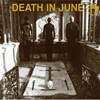 Among the most diverse entries in their catalog, Nada! is the sound of two very different individuals creating one distinct album. With the departure of Tony Wakeford, the band pretty much dropped the electric post-punk sound that characterized the earliest singles. What remains is about half acoustic ballads, and half gothic synth pop, but somehow feels like a coherent whole, and for me remains one of their best albums ever.
Among the most diverse entries in their catalog, Nada! is the sound of two very different individuals creating one distinct album. With the departure of Tony Wakeford, the band pretty much dropped the electric post-punk sound that characterized the earliest singles. What remains is about half acoustic ballads, and half gothic synth pop, but somehow feels like a coherent whole, and for me remains one of their best albums ever.
Personally I have never been too concerned with the pseudo-politics and politically incorrectness of the band, which is one of the reasons opinions on them is so decisive.For the most part, other than the militaristic rhythms and references to Klaus Barbie on "C'est un Reve," there’s not a whole lot of National Socialism to be found here, but a fair helping of nihilism and sadness abound.
The acoustic folk songs are, unsurprisingly, the ones courtesy of DIJ mainstay Douglas Pearce, the nascent sound that he would ram into the ground over the next 25 years, with diminishing returns.Here it’s not just a matter of it being fresh, there's also just a greater depth in arrangement and variety of songwriting.Songs like opener "The Honour of Silence" and "Behind the Rose (Fields of Rape)" remain among his strongest compositions, and have just the right amount of drama and bombast to accompany the guitar and vocals.
The classic "She Said Destroy," featuring David Tibet, continues this, leaning more into the pop realm than the other two, but losing none of the mystique.This is what makes this album stand out in the DIJ discography:the songs are catchy and memorable.For me, starting around The Wall of Sacrifice and continuing to the present day, too many of the songs since then simply disappear into the same mire of acoustic guitar and esoteric lyrics, mostly indiscernible from one to the other.Here each are distinct and powerful, never blurring into another track.
The other half of the album is mostly the work of Patrick Leagas, prior to forming Sixth Comm, and has a decidedly synth pop bent to it.Between the chintzy drum machines and rudimentary keyboards, it sounds very much a product of the era.For me, that’s not a problem at all, and it only adds to the quality of songs like "Rain of Despair," which sounds like nothing else the band has ever did with its almost dance-floor oriented drum programming and focus on rhythms more than vocals.
Even with these disparate approaches being used, there is a sense of unity that comes throughout:Leagas' "Foretold," while almost all programming and synths, has the same dark intensity that the folk tracks from Pearce specialize in.At the same time, the Pearce-sung "C'est un Reve" and "Crush My Love" also are far more synthetic than most of his work, yet still very much feel right.
For some reason, the earliest CD issue of this album via World Serpent tacked the bonus tracks to the beginning, while the more recent (and far superior) reissue via Tesco Organisation places them correctly at the end.A combination of B-sides and compilation tracks, to me they have always felt an essential piece of the album.The original version of "The Calling" appears here to balance its "Mark II" album take.Perhaps the best illustration of the dichotomy at play here, the original version relies mostly on Douglas' acoustic guitar playing, while the second version is all about the synths and sequences.
Also in dramatic contrast, the compilation track "The Torture Garden" is among the most avant garde of their early career, with its militaristic keyboards, Gregorian chants and drama infused vocals, which is nearly the polar opposite of "Born Again", a perfect little piece of synth pop that, in a more just world, would have been highly acclaimed upon release.
Like all of the reissued DIJ catalog, the Tesco-assisted reissue blows away the original, with much higher quality artwork and packaging, a quality mastering job, and an overall greater feeling of care in comparison, not to mention a much lower price tag.
Picking a favorite out of Death in June's early work isn't easy for me, because the holy trinity of this, The Guilty Have No Pride, and The World That Summer are all so different, yet brilliant in their own unique ways.Nada! would perhaps win by a hair, though it is a very close race.While Pearce seems to be content to follow a very formulaic approach to recording new work, while simultaneously reissuing mid-period albums in overpriced special packages with castoff tracks and re-recordings, it is work like Nada! that, to me, gives me hope with each new release, though disappointment almost always follows.
samples:
 
Read More
- Administrator
- Albums and Singles
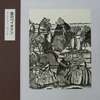 Whenever a new vinyl release by Andrew Chalk surfaces, several things are fairly certain: it will be a beautiful object, it will be expensive, and it will be worth it.  Packaging-wise, Violin by Night hits impressive new heights in both lavishness and mystery.  The corresponding songs, on the other hand, are atypically brief and melodic, often more closely resembling a damaged Romantic classical recording than anything drone-like.
Whenever a new vinyl release by Andrew Chalk surfaces, several things are fairly certain: it will be a beautiful object, it will be expensive, and it will be worth it.  Packaging-wise, Violin by Night hits impressive new heights in both lavishness and mystery.  The corresponding songs, on the other hand, are atypically brief and melodic, often more closely resembling a damaged Romantic classical recording than anything drone-like.
The album opens with "A New Heaven," unfolding a gentle, submerged-sounding piano or harmonic motif over a very minimal, murky, and vaporous bed.  It is extremely simple melodically, but Chalk creates some impressive things dynamics, making all the notes ripple, shimmer, and decay like droplets on a moonlit pool.This sets the tone for the album quite beautifully, as almost everything that follows seems evocative of some sort of remote nocturnal grove.  It isn't entirely an idyllic one though, as the album is populated with a number of pieces ("Violin by Night," for example) that feel elusive and spectral, drifting in and out of the sonic foreground like a strange, shifting mist. It is difficult to tell exactly what Chalk is playing on individual pieces due to the heavy processing (and because the liner notes are entirely in Japanese), but much of the album sounds like someone playing a lonely, melancholy organ solo somewhere in the distance, only snatches of which are audible due to the vagaries of the wind and the acoustics of the surrounding landscape.
Of course, there are a number of exceptions.  "Red Horse," for example, is very much a drone piece, augmenting its darkly queasy underbelly with some sort of bizarre overtone experiment that doesn't quite sustain my interest.  The other departures work much better though, as the shadowy, flange-heavy "Then and Now" sounds like a chamber ensemble heard though a thick fog of hallucinogens while "The Falling City" sounds like an understated, less emotionally ravaging cousin to one of Arvo Pärt's more sorrowful string pieces ("Cantus in Memory of Benjamin Britten," for example).  "The Falling City" is an uncharacteristically melodic and unprocessed work for Chalk, achieving an impressive orchestral grandeur that is not at all what I have come to expect from him.
It is difficult to say where this release falls within Chalk's ouevre quality-wise, as he's responsible for a number of stellar albums.  The important thing is that it is almost uniformly excellent, although the increased focus on melody coincides with a necessary decrease in song length–I miss the immersiveness of Chalk's more long-form work, as some of these songs are over before they fully take hold of me.  Also, I always appreciated that his work asked a lot of patience and focus from me as a listener.  The occasional overt melodies on Violin by Night may be a bit simpler and more accessible, but the shifted balance between space, texture, and melody works quite nicely and I would certainly be happy with wider recognition and increased demand for Andrew Chalk albums.  I can't complain.  Andrew might though, as the physical packaging for this album was handmade and seems like it was pretty damn labor-intensive (cloth, wood, great anthropomorphic animal art, everything in kanji, etc.).
Samples:
Read More
- Administrator
- Albums and Singles

The US edition of Electric Eden was published on Tuesday 10 May (Faber via Farrar, Straus & Giroux). Revised, updated and corrected!
In this groundbreaking survey of more than a century of music making in the British Isles, Rob Young investigates how the idea of folk has been handed down and transformed by successive generations – song collectors, composers, Marxist revivalists, folk-rockers, psychedelic voyagers, free festival-goers, experimental pop stars and electronic innovators. In a sweeping panorama of Albion’s soundscape that takes in the pioneer spirit of Cecil Sharp; the pastoral classicism of Ralph Vaughan Williams and Peter Warlock; the industrial folk revival of Ewan MacColl and A. L. Lloyd; the folk-rock of Fairport Convention, Sandy Denny, Nick Drake, Shirley Collins, John Martyn and Pentangle; the bucolic psychedelia of The Incredible String Band, The Beatles and Pink Floyd; the acid folk of Comus, Forest, Mr Fox and Trees; The Wicker Man and occult folklore; the early Glastonbury and Stonehenge festivals; and the visionary pop of Kate Bush, Julian Cope and Talk Talk, Electric Eden maps out a native British musical voice that reflects the complex relationships between town and country, progress and nostalgia, radicalism and conservatism.
A wild combination of pagan echoes, spiritual quest, imaginative time-travel, pastoral innocence and electrified creativity, Electric Eden will be treasured by anyone interested in the tangled story of Britain’s folk music and Arcadian dreams.
‘Like its subject, this wonderful and informative book is full of surprises; a deep poetic sense runs alongside adroit analysis, absorbing narrative detail and lucid, singular overview. Young has charted a territory that is sodden with mystery and tunnelled under with ceaselessly interconnecting themes and ideas – it is as much a state of consciousness that his book describes, connecting sun-lit myths of ‘merrie England’ to a bewitchingly autumnal study of English music’s profound relationship with time and the land.’
Michael Bracewell
‘Electric Eden maps the secret aquifer beneath the flourishing landscape of British musical creativity over the last century: the country’s heathen heritage of folklore andfancy, ritual and magic, tall tales and stubborn superstitions. Roving from time immemorial to modern antiquarians like Julian Cope, via the pioneering folk song collectors of the early 20th Century, the psychedelic minstrels of the late 1960s, and 70s mavericks like John Martyn and Kate Bush, Rob Young has crafted a vivid and penetrating study of this old, weird Albion. Electric Eden is a stunning achievement.’ Simon Reynolds
Read More
- Administrator
- Albums and Singles
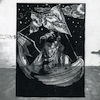 This is the latest EP by Jakob Battick’s group combines folk and psychedelic experimentation with slow motion arrangements; the group wear their influences on their sleeves but manage to distinguish themselves from their musical ancestors and their peers through their mixing of styles. Bloodworm Songs is by no means perfect (the recording quality is distinctly low fidelity and the more experimental segments are rather tame) but there is certainly diamonds hidden amidst the rough.
This is the latest EP by Jakob Battick’s group combines folk and psychedelic experimentation with slow motion arrangements; the group wear their influences on their sleeves but manage to distinguish themselves from their musical ancestors and their peers through their mixing of styles. Bloodworm Songs is by no means perfect (the recording quality is distinctly low fidelity and the more experimental segments are rather tame) but there is certainly diamonds hidden amidst the rough.
 
The opening piece, "My First Bloodworm Song (Up in the Sky)," reminds me very much of Thee Silver Mt. Zion’s "Broken Chords Can Sing a Little" from their first album; both groups combining shortwave radio broadcasts and haunting, minimal music to great effect. However, I was a little worried that Battick and his group might end up following this formula for the rest of the EP as there are only so many scratchy radio sounds I can take in one sitting. Thankfully, the remainder of Bloodworm Songs sees Battick and his friends creating gorgeous songs in their own style, moving away from the template set out in the opening piece.
As aforementioned, the recording quality is not exactly the industry standard; "Leper K" sounds like it was recorded on an answering machine but this blurred and dusty recording suits the vibe of the song as a collection of voices merge together over some gently strummed guitars and insistent violins. "Three Orphans" continues this thread as the group sounds like The Angels of Light if Fleet Foxes were in charge of the reverb pedal and vocal harmonies. Yet, as nice as this sounds, I feel Battick is holding back. His voice stays in a monotone when it sounds like he should be able to put potency and variation into his delivery.
The only piece I do not particularly enjoy on the EP is "Our Second Bloodworm Song (Fed Through Isinglass)" where the group create a noisy din out of scraped violins. It should be right up my alley but it seems a bit forced (especially with the comments in the sleeve notes about "Most people will stop listening before the end of this song"). The memories of this interlude are thankfully blotted out by the EP’s final song "Nine Brothers & The Wolf" where all my criticisms above about Battick’s voice are addressed which shows that he is as capable as I expected he was.
While this is not a perfect release, Battick and his colleagues show promise. With a more focused approach they could definitely put together a far stronger recording and hopefully their forthcoming full length release will build on the foundations laid here. That is not to denigrate Bloodworm Songs, despite its flaws it has a lot more character than many of the CDs that end up coming through my letterbox.
samples:
 
Read More
- Administrator
- Albums and Singles
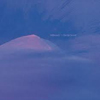 The album opens with the title track, a long piece brooding with psychological horror. Panning back and forth with ominous repetition it digs into me, beneath the surface, and I want to shed my skin. Oppressive and claustrophobic I clamor for air. This song feels like the moment of anxiety just before a peak experience. Once the summit of the mountain is reached however, the exultation and triumph incumbent upon a job well done kicks in and the rest of the album is crisp, vast, stretching without pause from horizon to horizon, clear as the hoarfrost on the arctic tundra.
The album opens with the title track, a long piece brooding with psychological horror. Panning back and forth with ominous repetition it digs into me, beneath the surface, and I want to shed my skin. Oppressive and claustrophobic I clamor for air. This song feels like the moment of anxiety just before a peak experience. Once the summit of the mountain is reached however, the exultation and triumph incumbent upon a job well done kicks in and the rest of the album is crisp, vast, stretching without pause from horizon to horizon, clear as the hoarfrost on the arctic tundra.
In common with the rest of the deep and benevolent ambience presented on the album "Aurora Performs It’s Last Show" captures expansive feelings of freedom by recreating the sounds of unbounded open space. Alessandro Tedeschi, who runs the Glacial Movements label, here presents his own distillation of sounds from the Northern Lights. It is another fine example of the isolationist aesthetic the label specializes in. A slow cycling of notes opens the song, which exists in the nether regions of dawn or twilight, a liminal space between regions. Leaking into the washed out glissandos is a corrupt transmission, a broken voice speaking through static. As regular readers may remember, I’m a big fan of the use of radio broadcasts, whether sampled or sourced live during a performance, in the creation of music. And while this tactic or gimmick doesn’t work with everything, when done well, it often produces startling results. On this piece it is used in minimal amounts, while still giving the song added texture and depth.
The centerpiece of the album is "Iceblink - Aurora Borealis Mix." A long lulling loop, resonant on the low end, is caressed by a cold northern wind. Higher octaves gradually emerge, short but repeating overtones, which harmonize with the ever present drone. Sprinkles of brittle bells and the cracking of ice are the only dramatic events in this piece which is less about narrative than about spatial awareness. "Crystallize Words" can rest comfortably alongside the classics of dark ambient. Low in the background or off in the distance, the pounding a bass drum brings back for a moment the sense of impending dread felt while listening to the title number–but it is not as all consuming. Symphonic strains swirl through the cold, as a faint voice murmurs, perhaps a memory or a ghost.
"Thoughts Locked In The Ice" give this listener some breathing space again. The pauses, gaps, and brief snippets of near silence are like breaks between snow storms, the clear terrain between deep blankets and heavy drifts. One of the most meditative pieces on the album, the simple textures recur over and over again, faithful as a treasured mantra. The last piece, "Iperborea," is the most otherworldly of the bunch, and rightly so as the title of the song is Italian for Hyperborean. To the ancient Greeks Hyperborea was the land in the far north where the sun shined for 24 hours a day. The steady pulses and shimmers of this song and this album took me to a similar place: both bright and cold.
samples:
 
Read More


